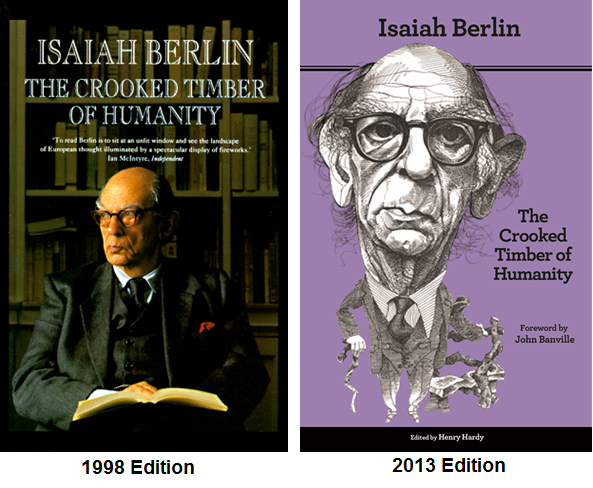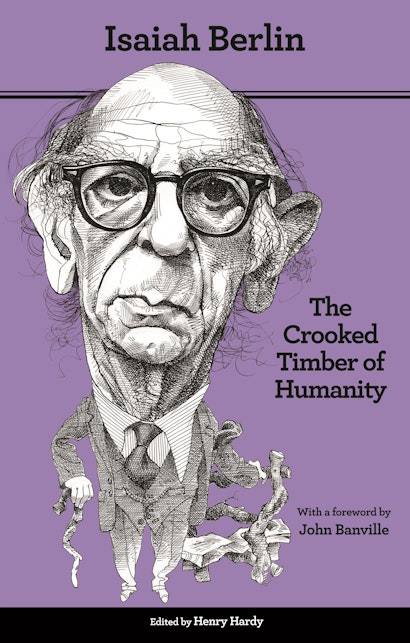The Crooked Timber of Humanity: Chapters in the History of Ideas was first published by Princeton in 1998. The new edition will be available May 2013! The title of this collection of essays comes from a quote by the philosopher Immanuel Kant: “Out of the crooked timber of humanity, no straight thing was ever made.”
In these philosophical essays, Berlin discusses the links between the ideas of the past and the social and political cataclysms of our present century. Berlin believed that mankind should be cautious of any system of thinking that pursues the ideal. Rather than utopianism, Berlin argued for pluralism. In terms of pluralism, Berlin believed that there was not necessarily one set of ideal values. Instead there could be multiple good values that could conflict with each other while still maintaining a level of equity between the values. He defined pluralism in his lecture “On the Pursuit of the Ideal” as “the conception that there are many different ends that men may seek and still be fully rational, fully men, capable of understanding each other and sympathizing and deriving light from each other”. In 1988, Berlin gave an address at the award ceremony in Turin for the first Senator Giovanni Agnelli International Prize. The lecture was titled “On the Pursuit of the Ideal” and is regarded as the most clear and articulate summary of pluralism. You can read the 1988 lecture here.
About the Author
Isaiah Berlin was a Fellow of All Souls College, Oxford. He was renowned as an essayist and as the author of many books, among them Karl Marx, Four Essays on Liberty, Russian Thinkers, The Sense of Reality, The Proper Study of Mankind, and, from Princeton, Concepts and Categories, Personal Impressions, The Crooked Timber of Humanity, The Hedgehog and the Fox, The Roots of Romanticism, The Power of Ideas, and Three Critics of the Enlightenment. Henry Hardy, a Fellow of Wolfson College, Oxford, is one of Isaiah Berlin’s literary trustees. He has edited several other volumes by Berlin and is currently preparing Berlin’s letters and remaining unpublished writings for publication.

